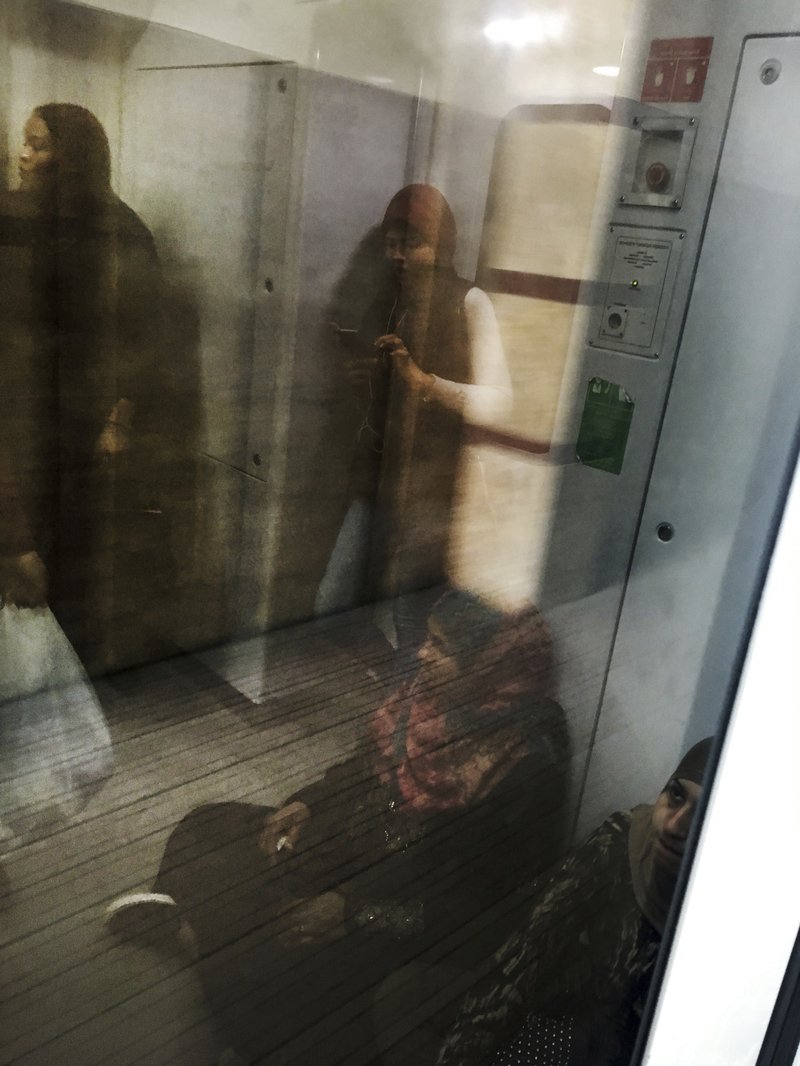CAIRO -- The fare for a ride on Cairo's subway -- as far as desired across the overcrowded, traffic-choked Egyptian capital -- costs the equivalent of 11 U.S. cents.
But even that feels like a burden for many of the millions of people who ride it each day at a time when Egyptians are scraping to get by, their purchasing power gutted amid painful economic overhauls being implemented by the government.
The 30-year-old Cairo Metro typifies Egypt's deep economic inequalities and the large distances between classes. Unlike subways in New York, Washington, Paris and elsewhere in the world, where the well-off and the poor mingle to at least some extent, the passengers who push and shove in and out of Cairo's metro cars each day are overwhelmingly poor or from the lower middle classes.
Vital for those who take it, the subway is scorned by the upper crust that doesn't need it.
Its stations and cars are almost bare of billboards because advertisers dismiss the passengers as "C Class" consumers. Residents of an upper-class district on a Nile island are furiously resisting having a station built in their neighborhood, fearing that it will attract a flood of slum-dwellers.
Despite traffic jams greeting those commuting back and forth into the city, there is no talk of extending the metro to the modern suburbs rising in the surrounding desert, where the better-off have been moving for years to escape Cairo's urban blight.
It is also one place where Egyptians' economic vulnerability runs head-on into the demands of policy changes.
The government, unable to afford the billions it spends to keep food, fuel and many services at near rock-bottom prices, has been straining to get its finances in order. So it has reduced subsidies, increased fuel prices and devalued the Egyptian pound, which fell from 8 to the dollar to about 18. Economists and foreign donors have praised the moves, which no previous government dared to carry out.
But the resulting inflation -- currently about 30 percent -- hit hard on a population where few have room to tighten their belts. Nearly a third of Egypt's population of 93 million lives under the poverty line, earning less than $2 a day. Many millions more hover just above the line, earning only slightly more.
In March, authorities doubled the metro fare from 1 pound to 2.
In dollar terms, that's actually cheaper. A year ago, 1 pound equaled about 12 U.S. cents. Now after the plunge in value, 2 pounds are worth about 11 cents.
But for passengers, who largely earn the same salaries in pounds now that they did last year, the doubling was another painful blow.
Complaints over the fare increase were so loud that President Abdel-Fattah el-Sissi shot back in a TV appearance.
"You tell me you are poor and cannot afford it. Well, let me tell you that [the government], too, [is] poor and cannot afford it," he said. In late May, he was snapped at a lawmaker who, on live television, asked that further increases in fuel and electricity prices be put off until a minimum monthly wage of about $165 is introduced.
"Who are you?" the president shouted. When the lawmaker identified himself as a member of the House of Representatives, el-Sissi responded, "What representatives? Did you study the topic you are talking about?"
In late June, fuel prices rose by up to 55 percent, and on Thursday, the government announced that electricity prices jumped by more than 40 percent.
El-Sissi has repeatedly made the case that consumers have to start paying something closer to the actual cost of services. The metro is saddled with $27.7 million in debt and runs annual losses of $11.1 million, according to Transport Minister Hesham Arafat.
"It's fine if he wants to charge me international prices for public services. I'll pay," said Hisham Mohammed, a 26-year-old law graduate riding the subway on a recent day. "But, in return, I need him to give me democracy and freedom of international standards," he said, alluding to criticism of el-Sissi's rule and reports of eroding freedoms and human-rights over the past three years.
Information for this article was contributed by Sam Magdy and Nariman El-Mofty of The Associated Press.
A Section on 07/07/2017
